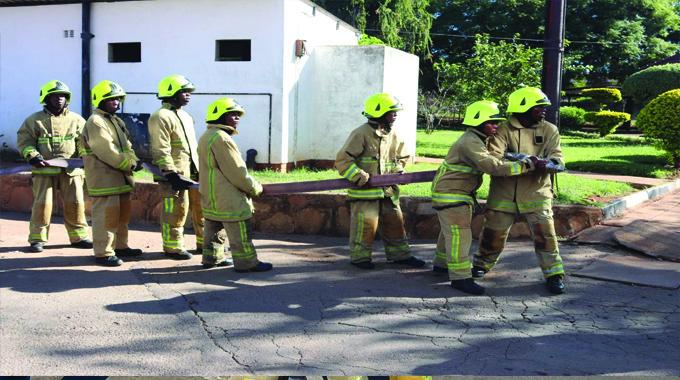News / Local
Bulawayo hit by wave of lithium battery fires
08 Aug 2025 at 16:38hrs |
2 Views

Lithium batteries meant to power homes are instead turning them into death traps, as a surge of fires linked to poorly installed solar systems sweeps across Bulawayo.
So far this year, 10 homes have been destroyed and one life lost. Added to the 32 lithium-related fires recorded in 2024, the total number of incidents now stands at a staggering 42, according to Bulawayo Fire Brigade Chief Fire Officer, Mhlangano Moyo.
The most recent blaze struck Cowdray Park on Monday, 4 August, when a house suddenly erupted in flames in broad daylight.
"The fire concentrated in one bedroom where items like the bed, wardrobe and suitcases were destroyed," Moyo said. "The cause was an overheated solar system. A gel battery exploded due to poor workmanship and the use of exposed wiring."
The occupants were not home at the time.
"We were at school and only found out when neighbours called us. By the time we arrived, the fire brigade and neighbours were trying to put out the flames," a family member recalled.
The Cowdray Park incident follows a series of similar disasters. On 24 May, a maid in Pumula was hospitalised after lithium batteries exploded in her room, engulfing it in flames. That same month, a fire in Burnside destroyed the home of Mr George, a Greek investor, after his solar batteries exploded - causing an estimated US$350,000 in damages.
Moyo warned that most of the fires are preventable.
"These incidents are avoidable. Most are caused by poor installation, substandard materials, and overcharging the batteries. People are using solar installers who cut corners and risk lives."
He urged residents to buy lithium batteries from reputable manufacturers, hire certified electricians for installations, install safety alarms, and regularly check battery health to avoid overcharging.
What should be a clean, reliable energy solution is, for many families, becoming a source of destruction and grief.
So far this year, 10 homes have been destroyed and one life lost. Added to the 32 lithium-related fires recorded in 2024, the total number of incidents now stands at a staggering 42, according to Bulawayo Fire Brigade Chief Fire Officer, Mhlangano Moyo.
The most recent blaze struck Cowdray Park on Monday, 4 August, when a house suddenly erupted in flames in broad daylight.
"The fire concentrated in one bedroom where items like the bed, wardrobe and suitcases were destroyed," Moyo said. "The cause was an overheated solar system. A gel battery exploded due to poor workmanship and the use of exposed wiring."
The occupants were not home at the time.
The Cowdray Park incident follows a series of similar disasters. On 24 May, a maid in Pumula was hospitalised after lithium batteries exploded in her room, engulfing it in flames. That same month, a fire in Burnside destroyed the home of Mr George, a Greek investor, after his solar batteries exploded - causing an estimated US$350,000 in damages.
Moyo warned that most of the fires are preventable.
"These incidents are avoidable. Most are caused by poor installation, substandard materials, and overcharging the batteries. People are using solar installers who cut corners and risk lives."
He urged residents to buy lithium batteries from reputable manufacturers, hire certified electricians for installations, install safety alarms, and regularly check battery health to avoid overcharging.
What should be a clean, reliable energy solution is, for many families, becoming a source of destruction and grief.
Source - B-Metro
Join the discussion
Loading comments…








































